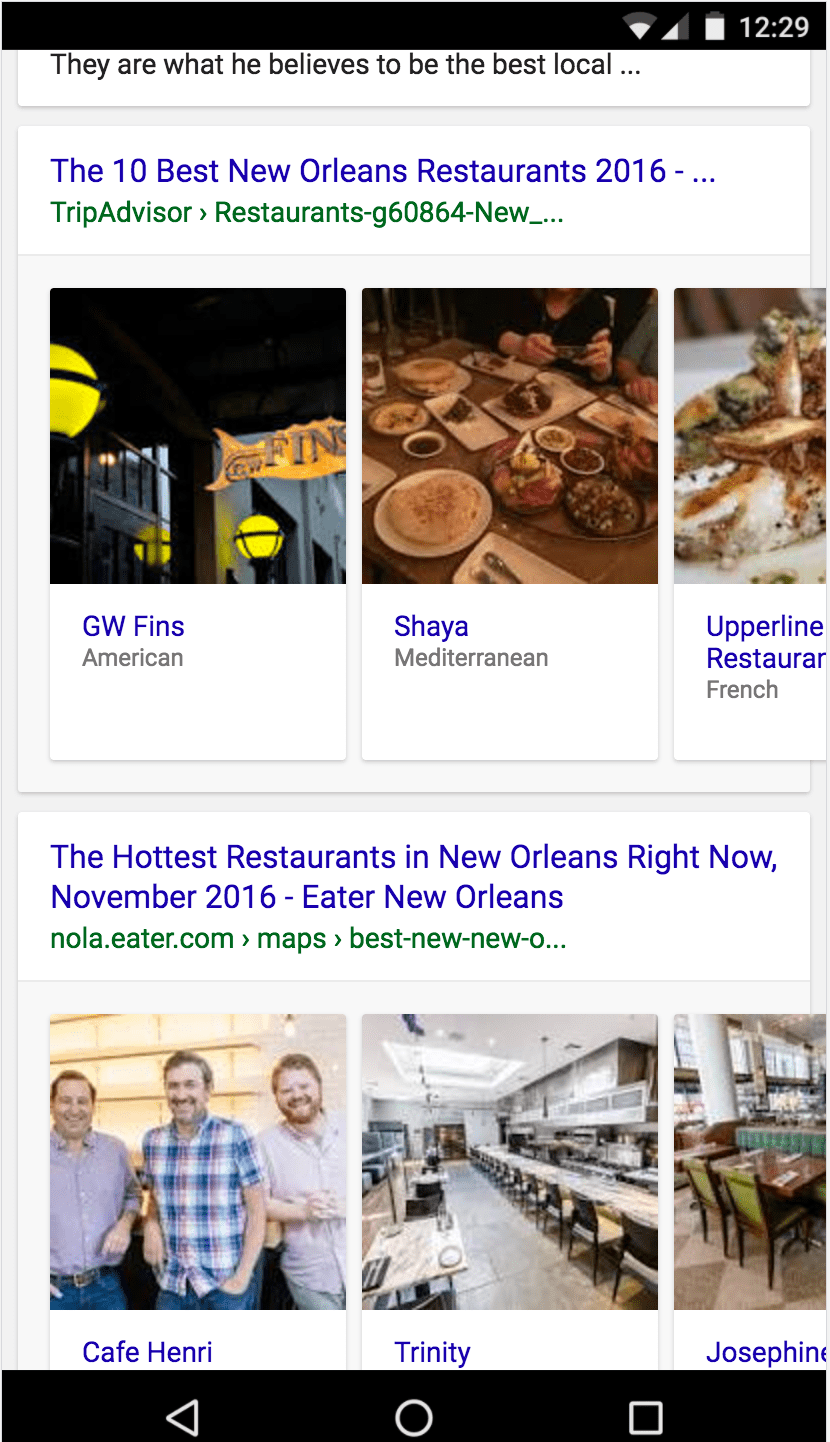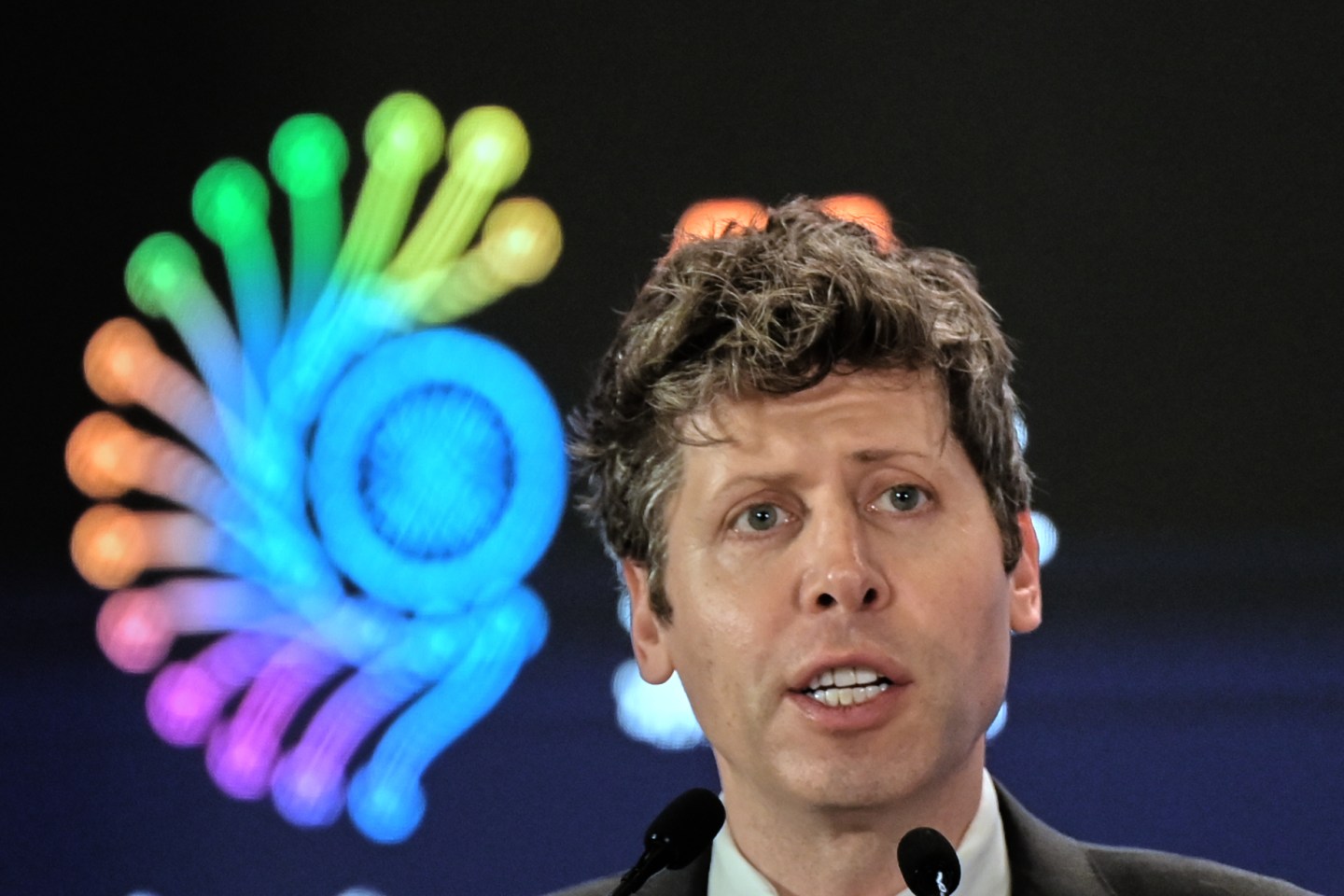Google is expanding its rich cards program in Search and will now enable local restaurants and online course providers to display their content in a more engaging, mobile-optimized interface.
The initiative was first launched back in May for movies and recipes, with search results displaying big, prominent images and a horizontally navigable carousel that grouped some results to make it easier for users. Now, people searching for “the best restaurants in New Orleans” or “online coding courses” will see a similar layout, though providers of the aforementioned services must build the rich cards for their respective sites.
At launch, companies such as TripAdvisor, Time Out, Thrillist, Udacity, and Coursera are on board, though it’s worth noting here that the feature is only open to U.S.-based sites for the moment.
Get Data Sheet, Fortune’s technology newsletter
Google (GOOGL) has been pushing to encourage companies to optimize their websites for mobile devices through a number of programs. Earlier this year, it launched the open-source AMP project, which allows news articles to display more quickly on smartphones when clicked through Google Search. While AMP HTML isn’t required for sites wishing to use rich cards, Google naturally recommends that they do.
“Users consuming AMP’d content will be able to swipe near instantly from restaurant to restaurant or from recipe to recipe within your site,” explained Stacie Chan, of global product partnerships at Google, in a blog post.
Recently, Google revealed that it would eventually use mobile versions of websites to rank search results, while it also plans to punish mobile sites that use interstitials — that is, ads that show up while a web page is loading.
Google revealed that it’s “actively experimenting” as it looks to expand rich cards to more categories around the world.
This article originally appeared at VentureBeat. All rights reserved.












